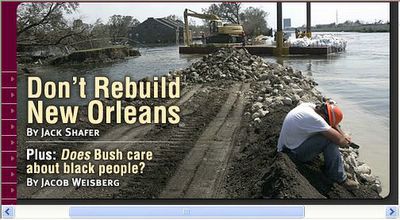WTC7 seems to be a classic controlled demolition. WTC 1 &2 destruction appears to have been enhanced by thermate (a variation of thermite) in addition. Pentagon was not struck by a passenger aircraft. It was a drone or missle.
Friday, September 09, 2005
Hawaii #5 - Clown Fish and a story
I am now going to post all the Hawaii pictures over the next few days.
---
Clown fish are amazing, the way they live with the anemone in a symbiotic relationship.
Back in the early 90s when I was living in Hong Kong, my wife (then girlfriend) went diving in the New Territories. It was her first dive in Hong Kong and she saw this lone clown fish and as the fish saw her and it started dancing around her and in front of her mask, as she says "it was dancing like a butterfly, sting like a bee". As she looked around she was quite saddened when she saw how impacted the marine life was in Hong Kong as there were no other clown fish in the immediate area. She ends the story with the hope that the clown fish finds a mate and it's anemone.
She still tells this story.
---
Clown fish are amazing, the way they live with the anemone in a symbiotic relationship.
Back in the early 90s when I was living in Hong Kong, my wife (then girlfriend) went diving in the New Territories. It was her first dive in Hong Kong and she saw this lone clown fish and as the fish saw her and it started dancing around her and in front of her mask, as she says "it was dancing like a butterfly, sting like a bee". As she looked around she was quite saddened when she saw how impacted the marine life was in Hong Kong as there were no other clown fish in the immediate area. She ends the story with the hope that the clown fish finds a mate and it's anemone.
She still tells this story.
Top CIA Official Resigns Citing Lack Of Confidence In The Agency�s Leadership� | The Huffington Post
Top CIA Official Resigns Citing Lack Of Confidence In The Agency�s Leadership� | The Huffington Post
Key Official In Clandestine Service of CIA To Retire
By Dana Priest and Walter Pincus
Washington Post Staff Writers
Friday, September 9, 2005; A05
Robert Richer, the second-ranking official in the CIA's clandestine service, has announced his retirement, telling colleagues that he lacked confidence in the agency's leadership, according to current and former intelligence officials.
Richer, who was one of CIA Director Porter J. Goss's key personnel choices, made his announcement last Friday at a meeting of the Directorate of Operations leaders, according to some of the officials.
Some of them said Richer's decision revolved around an ongoing debate over how to improve human intelligence and the direction of the CIA. The agency's role and influence have waned with the appointment of John D. Negroponte as the overall director of national intelligence.
Other government officials disagreed with that assertion and said Richer's departure involved disputes over "operational issues" that they would not specify, and a clash of personalities between Richer, a former Marine, and Goss and his top aides.
Last year, Richer's predecessor and his boss resigned after clashing with Goss's aides. During Friday's meeting, Richer said he and his boss, the deputy director of operations -- who cannot be named because he remains undercover -- had been frustrated by Goss and his staff in their efforts to implement certain measures, sources said. Richer subsequently met with national security adviser Stephen J. Hadley to explain his decision.
A CIA spokesman declined to comment on the matter. Other intelligence sources would speak only anonymously because of agency rules and traditions against speaking to the media.
Yesterday, Goss sent an unusual worldwide message to all CIA employees praising Richer for his nearly 35 years of service. That only fueled the belief among some former intelligence officials that Richer's resignation reflects ongoing problems at the agency.
Richer has served for less than a year as the number two in the spy service, having been promoted from being chief of the Near East division.
The CIA has been under pressure to make changes after a presidential commission and the Sept. 11 commission found last year that human intelligence collection had failed regarding both the al Qaeda terrorist network and whether Saddam Hussein had weapons of mass destruction.
The presidential commission recommended creation of a Human Intelligence Directorate within the CIA, which would rank above the agency's Directorate of Operations and coordinate foreign human-intelligence collection across the intelligence community, including the Pentagon and the FBI.
Some top administration officials favor a plan to make the clandestine service, as the Directorate of Operations is known, the central focus of the CIA, with all other functions -- such as analysis and technology -- subordinate to the human intelligence role.
Key Official In Clandestine Service of CIA To Retire
By Dana Priest and Walter Pincus
Washington Post Staff Writers
Friday, September 9, 2005; A05
Robert Richer, the second-ranking official in the CIA's clandestine service, has announced his retirement, telling colleagues that he lacked confidence in the agency's leadership, according to current and former intelligence officials.
Richer, who was one of CIA Director Porter J. Goss's key personnel choices, made his announcement last Friday at a meeting of the Directorate of Operations leaders, according to some of the officials.
Some of them said Richer's decision revolved around an ongoing debate over how to improve human intelligence and the direction of the CIA. The agency's role and influence have waned with the appointment of John D. Negroponte as the overall director of national intelligence.
Other government officials disagreed with that assertion and said Richer's departure involved disputes over "operational issues" that they would not specify, and a clash of personalities between Richer, a former Marine, and Goss and his top aides.
Last year, Richer's predecessor and his boss resigned after clashing with Goss's aides. During Friday's meeting, Richer said he and his boss, the deputy director of operations -- who cannot be named because he remains undercover -- had been frustrated by Goss and his staff in their efforts to implement certain measures, sources said. Richer subsequently met with national security adviser Stephen J. Hadley to explain his decision.
A CIA spokesman declined to comment on the matter. Other intelligence sources would speak only anonymously because of agency rules and traditions against speaking to the media.
Yesterday, Goss sent an unusual worldwide message to all CIA employees praising Richer for his nearly 35 years of service. That only fueled the belief among some former intelligence officials that Richer's resignation reflects ongoing problems at the agency.
Richer has served for less than a year as the number two in the spy service, having been promoted from being chief of the Near East division.
The CIA has been under pressure to make changes after a presidential commission and the Sept. 11 commission found last year that human intelligence collection had failed regarding both the al Qaeda terrorist network and whether Saddam Hussein had weapons of mass destruction.
The presidential commission recommended creation of a Human Intelligence Directorate within the CIA, which would rank above the agency's Directorate of Operations and coordinate foreign human-intelligence collection across the intelligence community, including the Pentagon and the FBI.
Some top administration officials favor a plan to make the clandestine service, as the Directorate of Operations is known, the central focus of the CIA, with all other functions -- such as analysis and technology -- subordinate to the human intelligence role.
Police State....
Part of the Update that contains the headline: Nets: Juvenile Execution Ruling Brings U.S. Into Line with World --3/2/2005-- Media Research Center: "His lawyers say the U.S. let the authorities in Saudi Arabia torture him"
Latest News (from the LA Times 09/09/2005)
Charges Added in Alleged Plot Against Bush
Prosecutors say a Falls Church, Va., man also planned to set up an Al Qaeda cell in the U.S. He could face life in prison if convicted.From Associated PressSeptember 9, 2005McLEAN, Va. — A man accused of plotting to assassinate President Bush was indicted Thursday on additional charges that could bring life in prison, and prosecutors say he also planned to establish an Al Qaeda cell in the United States.Prosecutors say that Ahmed Omar Abu Ali, 24, of Falls Church, Va., joined Al Qaeda in 2002 while studying in Saudi Arabia and that he discussed possible terrorist operations, including a plot to kill Bush either by shooting or by a suicide bombing.Prosecutors also allege Abu Ali discussed plans to assassinate members of Congress and to hijack aircraft and fly them into U.S. targets.The new indictment adds counts of conspiracy to assassinate the president, conspiracy to commit aircraft piracy and conspiracy to destroy aircraft. Previously, those allegations were included in a general charge of conspiracy to support terrorist organizations.The aircraft piracy charge carries a mandatory minimum of 20 years in prison, and the count alleging assassination conspiracy carries a term of up to life in prison.Abu Ali has denied the charges and says he was tortured into a false confession by Saudi authorities working with the United States.Prosecutors deny that Abu Ali was mistreated while in Saudi custody.Thursday's indictment includes new details, including an alleged plan to smuggle Saudi Al Qaeda members into the United States through Mexico, where they would join Abu Ali as part of an Al Qaeda cell dedicated to terrorist acts.Previously, prosecutors had said only that Abu Ali wanted to be a planner of terrorist attacks in the mold of Sept. 11 ringleader Mohamed Atta.According to the indictment, Abu Ali also guarded an Al Qaeda safe house in Saudi Arabia in May 2003 and translated materials from English to Arabic for Al Qaeda.Abu Ali was arrested by the Saudis in June 2003 and held until he was returned to the United States in February to face charges.His trial is set for October, and prosecutors said the new indictment wasn't likely to delay it. His arraignment on the new charges is expected next week
Latest News (from the LA Times 09/09/2005)
Charges Added in Alleged Plot Against Bush
Prosecutors say a Falls Church, Va., man also planned to set up an Al Qaeda cell in the U.S. He could face life in prison if convicted.From Associated PressSeptember 9, 2005McLEAN, Va. — A man accused of plotting to assassinate President Bush was indicted Thursday on additional charges that could bring life in prison, and prosecutors say he also planned to establish an Al Qaeda cell in the United States.Prosecutors say that Ahmed Omar Abu Ali, 24, of Falls Church, Va., joined Al Qaeda in 2002 while studying in Saudi Arabia and that he discussed possible terrorist operations, including a plot to kill Bush either by shooting or by a suicide bombing.Prosecutors also allege Abu Ali discussed plans to assassinate members of Congress and to hijack aircraft and fly them into U.S. targets.The new indictment adds counts of conspiracy to assassinate the president, conspiracy to commit aircraft piracy and conspiracy to destroy aircraft. Previously, those allegations were included in a general charge of conspiracy to support terrorist organizations.The aircraft piracy charge carries a mandatory minimum of 20 years in prison, and the count alleging assassination conspiracy carries a term of up to life in prison.Abu Ali has denied the charges and says he was tortured into a false confession by Saudi authorities working with the United States.Prosecutors deny that Abu Ali was mistreated while in Saudi custody.Thursday's indictment includes new details, including an alleged plan to smuggle Saudi Al Qaeda members into the United States through Mexico, where they would join Abu Ali as part of an Al Qaeda cell dedicated to terrorist acts.Previously, prosecutors had said only that Abu Ali wanted to be a planner of terrorist attacks in the mold of Sept. 11 ringleader Mohamed Atta.According to the indictment, Abu Ali also guarded an Al Qaeda safe house in Saudi Arabia in May 2003 and translated materials from English to Arabic for Al Qaeda.Abu Ali was arrested by the Saudis in June 2003 and held until he was returned to the United States in February to face charges.His trial is set for October, and prosecutors said the new indictment wasn't likely to delay it. His arraignment on the new charges is expected next week
ProfessorBainbridge.com: Media Matters for America on Price Gouging
ProfessorBainbridge.com: Media Matters for America on Price Gouging
Blogger Thoughts: I hestitate to comment on this, since I haven't read the MMFA post in question. To my knowledge Bainbridge is fairly on top of legal and business law issues, but his economic analysis and most likely knee jerk support of Stossel's presentation shows his tendency toward wishful thinking.
What Bainbridge and Stossel could have said.
Blogger Thoughts: I hestitate to comment on this, since I haven't read the MMFA post in question. To my knowledge Bainbridge is fairly on top of legal and business law issues, but his economic analysis and most likely knee jerk support of Stossel's presentation shows his tendency toward wishful thinking.
What Bainbridge and Stossel could have said.
Muddy Menace - Newsweek Hurricane Katrina Coverage - MSNBC.com
Muddy Menace - Newsweek Hurricane Katrina Coverage - MSNBC.com
Great interactive of flooded city.
My Odeo Channel (odeo/78caf13a7869a6cf)
Great interactive of flooded city.
My Odeo Channel (odeo/78caf13a7869a6cf)
Plenty of Blame to Go Around - - MSNBC.com
Plenty of Blame to Go Around - - MSNBC.com
Blogger: This won't win me friends with Bush supporters or Bush opponnets. The fact is that we don't know that the the levies weren't destroyed on purpose.
Blogger: This won't win me friends with Bush supporters or Bush opponnets. The fact is that we don't know that the the levies weren't destroyed on purpose.
Medical experts: Yasser Arafat died of AIDS or poisoning
title: "Medical experts: Yasser Arafat died of AIDS or poisoning"
ProfessorBainbridge.com: Outsourcing Disaster Relief: Take 2
ProfessorBainbridge.com: Outsourcing Disaster Relief: Take 2
Blogger Thoughts: My first reaction was that I needed to study the the post at TCS, and examine the points. As I was imagining, after such effort, realizing that I would take issue with what was being presented as reality was highly suspect, the thought was that the evidence and conclusions would require a slog of writing to detail how flawed the proposal is.
With just a tad more reflection, it occurred to me that "Outsourcing Disaster Relief" doesn't have to resemble the scam that is being attempted with the Social Security privatization. If there's a way to make disaster relief more efficient and less subject to corruption, why shouldn't all of us be for it?
Blogger Thoughts: My first reaction was that I needed to study the the post at TCS, and examine the points. As I was imagining, after such effort, realizing that I would take issue with what was being presented as reality was highly suspect, the thought was that the evidence and conclusions would require a slog of writing to detail how flawed the proposal is.
With just a tad more reflection, it occurred to me that "Outsourcing Disaster Relief" doesn't have to resemble the scam that is being attempted with the Social Security privatization. If there's a way to make disaster relief more efficient and less subject to corruption, why shouldn't all of us be for it?
Hey, Brownie, what happened to Pat Robertson?
Salon.com Politics War Room | Politics: "Hey, Brownie, what happened to Pat Robertson?
Pat Robertson says John Roberts should be "thankful" for Hurricane Katrina because, in the storm's aftermath, the country won't have much tolerance for "inflamed rhetoric" at his confirmation hearings.
Robertson can be thankful for Katrina, too. In the first days of the hurricane, FEMA told visitors to its Web site that there were three good places to send money to help hurricane victims: the American Red Cross, Second Harvest and Robertson's own Operation Blessing. "How in the heck did that happen?" Richard Walden, president of the disaster-relief group Operation USA, asks in the Nation. "That gives Pat Robertson millions of extra dollars."
Well, yes it does, and FEMA Director Michael Brown was asked about it yesterday. How did the little known, highly questionable charity of a TV evangelist and assassination advocate make FEMA's shortlist? "We're not turning away help from anybody," Brown said.
FEMA may not be turning away Robertson's help, but the agency has apparently decided to take the spotlight off it. The FEMA Web page that listed the Red Cross, Second Harvest and Operation Blessing has disappeared, replaced by a redirect to a USA Freedom Corps page that lists a number of charities to which one might contribute. Operation Blessing isn't among them.
But that doesn't mean the Bush administration is abandoning its faith-based friends in this time of opportunity. Before the USA Freedom Corps page gets around to the American Red Cross, it offers up a link for the Network for Good, which in turn provides a link to dozens of charitable organizations -- including Operation Blessing.
-- T.G.
Pat Robertson says John Roberts should be 'thankful' for Hurricane Katrina because, in the storm's aftermath, the country won't have much tolerance for 'inflamed rhetoric' at his confirmation hearings.
Robertson can be thankful for Katrina, too. In the first days of the hurricane, FEMA told visitors to its Web site that there were three good places to send money to help hurricane victims: the American Red Cross, Second Harvest and Robertson's own Operation Blessing. 'How in the heck did that happen?' Richard Walden, president of the disaster-relief group Operation USA, asks in the Nation. 'That gives Pat Robertson millions of extra dollars.'
Well, yes it does, and FEMA Director Michael Brown was asked about it yesterday. How did the little known, highly questionable charity of a TV evangelist and assassination advocate make FEMA's shortlist? 'We're not turning away help from anybody,' Brown said.
FEMA may not be turning away Robertson's help, but the agency has apparently decided to take the spotlight off it. The FEMA Web page that listed the Red Cross, Second Harvest and Operation Blessing has disappeared, replaced by a redirect to a USA Freedom Corps page that lists a number of charities to which one might contribute. Operation Blessing isn't among them.
But that doesn't mean the Bush administration is abandoning its faith-based friends in this time of opportunity. Before the USA Freedom Corps page gets around to the American Red Cross, it offers up a link for the Network for Good, which in turn provides a link to dozens of charitable organizations -- including Operation Blessing.
-- T.G."
Pat Robertson says John Roberts should be "thankful" for Hurricane Katrina because, in the storm's aftermath, the country won't have much tolerance for "inflamed rhetoric" at his confirmation hearings.
Robertson can be thankful for Katrina, too. In the first days of the hurricane, FEMA told visitors to its Web site that there were three good places to send money to help hurricane victims: the American Red Cross, Second Harvest and Robertson's own Operation Blessing. "How in the heck did that happen?" Richard Walden, president of the disaster-relief group Operation USA, asks in the Nation. "That gives Pat Robertson millions of extra dollars."
Well, yes it does, and FEMA Director Michael Brown was asked about it yesterday. How did the little known, highly questionable charity of a TV evangelist and assassination advocate make FEMA's shortlist? "We're not turning away help from anybody," Brown said.
FEMA may not be turning away Robertson's help, but the agency has apparently decided to take the spotlight off it. The FEMA Web page that listed the Red Cross, Second Harvest and Operation Blessing has disappeared, replaced by a redirect to a USA Freedom Corps page that lists a number of charities to which one might contribute. Operation Blessing isn't among them.
But that doesn't mean the Bush administration is abandoning its faith-based friends in this time of opportunity. Before the USA Freedom Corps page gets around to the American Red Cross, it offers up a link for the Network for Good, which in turn provides a link to dozens of charitable organizations -- including Operation Blessing.
-- T.G.
Pat Robertson says John Roberts should be 'thankful' for Hurricane Katrina because, in the storm's aftermath, the country won't have much tolerance for 'inflamed rhetoric' at his confirmation hearings.
Robertson can be thankful for Katrina, too. In the first days of the hurricane, FEMA told visitors to its Web site that there were three good places to send money to help hurricane victims: the American Red Cross, Second Harvest and Robertson's own Operation Blessing. 'How in the heck did that happen?' Richard Walden, president of the disaster-relief group Operation USA, asks in the Nation. 'That gives Pat Robertson millions of extra dollars.'
Well, yes it does, and FEMA Director Michael Brown was asked about it yesterday. How did the little known, highly questionable charity of a TV evangelist and assassination advocate make FEMA's shortlist? 'We're not turning away help from anybody,' Brown said.
FEMA may not be turning away Robertson's help, but the agency has apparently decided to take the spotlight off it. The FEMA Web page that listed the Red Cross, Second Harvest and Operation Blessing has disappeared, replaced by a redirect to a USA Freedom Corps page that lists a number of charities to which one might contribute. Operation Blessing isn't among them.
But that doesn't mean the Bush administration is abandoning its faith-based friends in this time of opportunity. Before the USA Freedom Corps page gets around to the American Red Cross, it offers up a link for the Network for Good, which in turn provides a link to dozens of charitable organizations -- including Operation Blessing.
-- T.G."
Macabre Reminder: The Corpse on Union Street - New York Times
Macabre Reminder: The Corpse on Union Street - New York Times: "
September 8, 2005
Macabre Reminder: The Corpse on Union Street
By DAN BARRY
NEW ORLEANS, Sept. 7 - In the downtown business district here, on a dry stretch of Union Street, past the Omni Bank automated teller machine, across from a parking garage offering 'early bird' rates: a corpse. Its feet jut from a damp blue tarp. Its knees rise in rigor mortis.
Six National Guardsmen walked up to it on Tuesday afternoon and two blessed themselves with the sign of the cross. One soldier took a parting snapshot like some visiting conventioneer, and they walked away. New Orleans, September 2005.
Hours passed, the dusk of curfew crept, the body remained. A Louisiana state trooper around the corner knew all about it: murder victim, bludgeoned, one of several in that area. The police marked it with traffic cones maybe four days ago, he said, and then he joked that if you wanted to kill someone here, this was a good time.
Night came, then this morning, then noon, and another sun beat down on a dead son of the Crescent City.
That a corpse lies on Union Street may not shock; in the wake of last week's hurricane, there are surely hundreds, probably thousands. What is remarkable is that on a downtown street in a major American city, a corpse can decompose for days, like carrion, and that is acceptable.
Welcome to New Orleans in the post-apocalypse, half baked and half deluged: pestilent, eerie, unnaturally quiet.
Scraggly residents emerge from waterlogged wood to say strange things, and then return into the rot. Cars drive the wrong way on the Interstate and no one cares. Fires burn,"
September 8, 2005
Macabre Reminder: The Corpse on Union Street
By DAN BARRY
NEW ORLEANS, Sept. 7 - In the downtown business district here, on a dry stretch of Union Street, past the Omni Bank automated teller machine, across from a parking garage offering 'early bird' rates: a corpse. Its feet jut from a damp blue tarp. Its knees rise in rigor mortis.
Six National Guardsmen walked up to it on Tuesday afternoon and two blessed themselves with the sign of the cross. One soldier took a parting snapshot like some visiting conventioneer, and they walked away. New Orleans, September 2005.
Hours passed, the dusk of curfew crept, the body remained. A Louisiana state trooper around the corner knew all about it: murder victim, bludgeoned, one of several in that area. The police marked it with traffic cones maybe four days ago, he said, and then he joked that if you wanted to kill someone here, this was a good time.
Night came, then this morning, then noon, and another sun beat down on a dead son of the Crescent City.
That a corpse lies on Union Street may not shock; in the wake of last week's hurricane, there are surely hundreds, probably thousands. What is remarkable is that on a downtown street in a major American city, a corpse can decompose for days, like carrion, and that is acceptable.
Welcome to New Orleans in the post-apocalypse, half baked and half deluged: pestilent, eerie, unnaturally quiet.
Scraggly residents emerge from waterlogged wood to say strange things, and then return into the rot. Cars drive the wrong way on the Interstate and no one cares. Fires burn,"
Subscribe to:
Comments (Atom)











